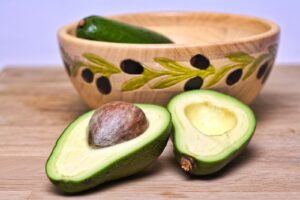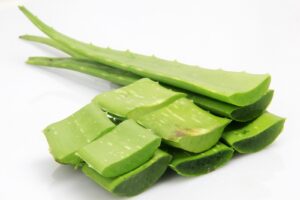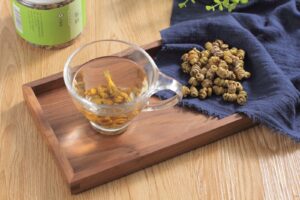What is Borage Oil
Borage Oil is extracted from the seeds from the Borago Officinalis starflower which is native throughout Europe and Asia. They are currently sold in the form of oils or nutritional supplements such as capsules or softgels. Due to its therapeutic potential, Borage oil has gained substantiative interest among global research groups. It is known for its rich essential omega-6 fatty acid content specifically gamma linoleic acid (GLA). Similar to omega-3 fatty acids, these GLA compounds have shown to help reduce inflammation. Additionally, borage oil also possess radical scavenging and antioxidant properties.
More about gamma linoleic acid (GLA) in Borage Oil
As mentioned previously, borage oil contains higher levels of GLA compared with other seed oils. GLA makes up borage oil’s primary ingredient. This linolenic acid content is a form of fatty acid your body uses to convert prostaglandin E1. It is also found in primrose, seeds, nuts and other vegetable oils. It is known for reducing inflammation, namely within the skin and cardiovascular organs
Benefits of Borage Oil among various diseases
As Borage Oil contains high amounts of GLA, it is being extensively researched for potential nutritive effects on various diseases. Here are some health conditions that have benefited from the use of borage oil supplements:
Rheumatoid Arthritis
Borage Oil has been proven to show therapeutic efficacy against Rheumatoid Arthritis (RA), a chronic inflammatory disorder that affects our joints. This is because borage oil reduces TNF-α levels, a cytokine that stimulates bone destruction in RA. Research has found that participants with RA who consumed 2.3g of fish oil and/or 1.8g of borage oil helped reduce their symptoms. This experiment also concluded that borage oil could replace nonsteroidal anti-inflammatory drugs (NSAIDs) for some.
Atherosclerosis
Atherosclerosis is an inflammatory disorder characterized by loss of function of the arterial endothelium. This loss of function triggers a differentiation of macrophages, eventually leading to atherosclerotic disease progression. However, borage oil has shown to offer a protective effect by reducing the expression of those inflammatory macrophages.
Alzheimer’s Diseases
Alzheimer’s disease (AD) is the most prevalent form of dementia and neurodegenerative disorder. It manifests in the form of memory impairment caused by βamyloid-induced neurodegeneration. The GLA compound seen in borage oil has immunomodulatory and antioxidant properties which has been shown to improve this form of cognitive dysfunction. Promisingly, research has shown that borage oil exhibited potential in reversing neurotoxic processes and loss of cognitive functions in Alzheimer’s disease.
Eczema
Borage oil is being increasingly recognized for their effects on various skin diseases, namely eczema. Borage oil has been reviewed to beneficial for people with atopic dermatitis. This is evidently due to its anti-inflammatory properties. Clinical research has also shown more promising results when the oil is applied topically rather than taking oral capsules. However, findings have been mixed and more conclusive research is needed to confirm the healing power of borage oil in skin-related diseases.
Fatty Liver Disease
Due to borage oil’s GLA content, it is known to have a protective effect against fatty liver disease. Fatty liver disease is a condition caused by the storage of extra fat in the liver which could be a result of heavy alcohol consumption. Therefore, it benefits from the hepatoprotective effects of borage oil – the ability of a chemical substance, such as alcohol, to prevent damage to the liver. GLA exhibits this hepatoprotective effect by regulating the processes involved in hepatic fatty synthesis.
Growth in Premature Infants
Research published in the Journal of Pediatrics demonstrated preterm infants that consumed formula with borage oil showed more growth compared to those given a standard formula. Formula supplemented with borage oil has aided development of premature infants, particularly boys. While more research is needed to confirm this, it is still promising that GLA displayed efficacy for growth and neurodevelopment with no adverse effects.
Acute Respiratory Distress Syndrome (ARDS)
Research has shown that the GLA content found in borage oil could shorten the time patients withAcute Respiratory Distress Syndrome (ARDS)receive intensive care treatment. They found that patients who were provided a high GLA diet exhibited shorter ICU stays and greater improvement compared to those with a standard diet. This was possible due to the fact GLA restored plasma levels of beta-carotene and alpha-tocopherol to normal or higher levels and appeared to protect ARDS patients from further lipid peroxidation.
Takeaways
As inflammation is the underlying cause of many health conditions, the presence of the GLA compound in borage oil has garnered a lot of research interests due to its anti-inflammatory properties. Borage oil supplements are now widely sold in health food stores and online marketplaces. It’s also common to see them in skin creams and various beauty products. Research findings on borage oil have indeed shown to be promising. However, extensive research still needs done to further solidify the positive healing effects of this supplement.
References
1. Brennan, F. M., & McInnes, I. B. (2008). Evidence that cytokines play a role in rheumatoid arthritis. Journal of Clinical Investigation, 118(11), 3537–3545. https://doi.org/10.1172/jci36389
2. Fewtrell, M. S., Abbott, R. A., Kennedy, K., Singhal, A., Morley, R., Caine, E., … Lucas, A. (2004). Randomized, double-blind trial of long-chain polyunsaturated fatty acid supplementation with fish oil and borage oil in preterm infants. The Journal of Pediatrics, 144(4), 471–479. https://doi.org/10.1016/j.jpeds.2004.01.034
3. Lin, T.-K., Zhong, L., & Santiago, J. (2017). Anti-Inflammatory and Skin Barrier Repair Effects of Topical Application of Some Plant Oils. International Journal of Molecular Sciences, 19(1), 70. https://doi.org/10.3390/ijms19010070
4. Lorkowski, S., & Cullen, P. (2007). Atherosclerosis: Pathogenesis, Clinical Features and Treatment. Encyclopedia of Life Sciences. https://doi.org/10.1002/9780470015902.a0004228
5. Asadi-Samani, M., Bahmani, M., & Rafieian-Kopaei, M. (2014). The chemical composition, botanical characteristic and biological activities of Borago officinalis: a review. Asian Pacific Journal of Tropical Medicine, 7, S22–S28. https://doi.org/10.1016/s1995-7645(14)60199-1
6. Bamford, J. T., Ray, S., Musekiwa, A., van Gool, C., Humphreys, R., & Ernst, E. (2013). Oral evening primrose oil and borage oil for eczema. Cochrane Database of Systematic Reviews. https://doi.org/10.1002/14651858.cd004416.pub2
7. Bandonien, D., & Murkovic, M. (2002). The detection of radical scavenging compounds in crude extract of borage (Borago officinalis L.) by using an on-line HPLC-DPPH method. Journal of Biochemical and Biophysical Methods, 53(1-3), 45–49. https://doi.org/10.1016/s0165-022x(02)00091-x
8. Kalhor, H. R., & Ashrafian, H. (2017). Identification of an aspidospermine derivative from borage extract as an anti-amyloid compound: A possible link between protein aggregation and antimalarial drugs. Phytochemistry, 140, 134–140. https://doi.org/10.1016/j.phytochem.2017.05.001
9. Lukivskaya, O. Ya., Naruta, E., Sadovnichy, V., Kirko, S., & Buko, V. U. (2012). Reversal of Experimental Ethanol-induced Liver Steatosis by Borage Oil. Phytotherapy Research, 26(11), 1626–1631. https://doi.org/10.1002/ptr.4621
10. Nelson, J., DeMichele, S., Pacht, E., & Wennberg, A. (2003). Effect of enteral feeding with eicosapentaenoic acid, gamma-linolenic acid, and antioxidants on antioxidant status in patients with acute respiratory distress syndrome. Journal of Parenteral and Enteral Nutrition, 27(2), 98–104. https://doi.org/10.1177/014860710302700298
11. Reed, G. W., Leung, K., Rossetti, R. G., VanBuskirk, S., Sharp, J. T., & Zurier, R. B. (2014). Treatment of Rheumatoid Arthritis with Marine and Botanical Oils: An 18-Month, Randomized, and Double-Blind Trial. Evidence-Based Complementary and Alternative Medicine, 2014, 1–9. https://doi.org/10.1155/2014/857456
12. Shewale, S. V., Boudyguina, E., Zhu, X., Shen, L., Hutchins, P. M., Barkley, R. M., … Parks, J S. (2015). Botanical oils enriched in n-6 and n-3 FADS2 products are equally effective in preventing atherosclerosis and fatty liver. Journal of Lipid Research, 56(6), 1191–1205. https://doi.org/10.1194/jlr.m059170

Janessa is a Psychology Analyst with interests in health and wellbeing, human behaviour, and community growth. She is known for honing her research expertise to curate evidence based blog articles.





